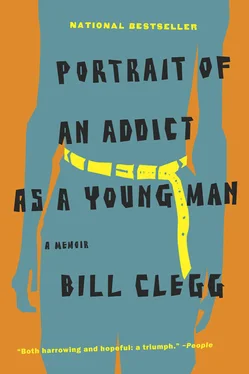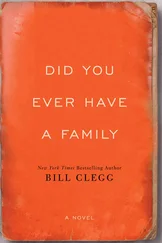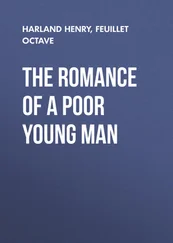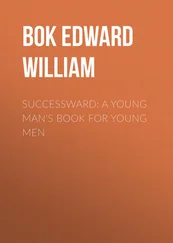It feels as if each week, there is some lunch or some dinner or some phone call that is going to blow my cover, reveal that I am not nearly as bright or well read or business savvy or connected as I think people imagine me to be. My bank account is always empty, and when I look at the ledgers at the agency, I wonder how we will pay our employees, the rent, the phone bill, without Kate writing another check to float us. Noah is covering my expenses at home, but we are keeping a tally so that I will pay him back once the money from commissions starts coming into the agency. I remember the lines from a Merwin poem I used to read to Nell all the time, I have been a poor man living in a rich man’s house, and cringe each time. I often wish it all felt the way it looked, that I could actually be living the life everyone thinks they see. But it feels like a rigged show, one loose cable away from collapse.
Noah is making trips to L.A. and Memphis to rustle up producers and cast and money for the film he has been working on for years. When he is away, I call Rico or Happy or go see Julio, a guy I meet through another guy I met at Fitz’s place on the second and last time I went there. This guy, a twenty-year-old Hispanic kid with gray teeth, will invite me to Julio’s, and I will end up going there for years. People come to Julio’s and he lets them do drugs and have sex, as long as they share both. These nights were once few and far between — every two or three months — but now they are every other week, and while they would once end around one, they are now creeping closer and closer toward dawn.
After another rough morning, after Noah has begged me to get help, I agree to see a psychiatrist who specializes in addiction issues. We get a name from a college friend of Noah’s and I go. His office is in his very large, very elegant Riverside Drive apartment. It’s a short meeting. He asks why I’m there. I tell him about my drug use and how I want to stop but can’t seem to and he asks about my drinking. My drinking? I ask, as if he’s suddenly mentioned the weather in Peru or the price of IBM stock. He says I need to stop drinking before he will agree to see me and I politely excuse myself and leave.
Half a year later, after another string of bad nights, there is another name, another therapist, recommended by some other friend. This one is different, calls himself a Harm Reduction Counselor, which is another way of saying someone who helps you plan your alcohol and drug use, to get it under control. I go to this person once. He is a very attractive man in his early forties with a chic apartment-like office in Chelsea. We make an elaborate plan — this number of drinks a night, that number of times I will smoke crack a month — and I’m excited that my drinking and drug use are now doctor approved. Within a week I exceed the limits we’ve established and then miss the second appointment because of staying up all night the night before. I never return.
Months later: another rough morning, another name from a friend of Noah’s. This time it’s Gary, and he’s gentle and sweet and his office is a few blocks from the agency. Gary asks why I have come to see him and I tell him. He pokes around about the childhood stuff, we talk about the peeing, the hard father, the frightened mother. How they met when he was a pilot for TWA and she was a young, pretty stewardess. When we get to the part about my father, he asks what my mother said at the dinner table when things got rough. I describe how cruel he was to her, how poor she was growing up in Youngstown, how much younger she is than my father, how her own father died when she was a teenager. He says, Fine fine fine, but what did she say? Where was she?
Amazing, the power of three words. These will open up such a can of worms. I will sit there and think about all the sessions with Dr. Dave, when I went through, blow by blow, how my father was during that time — how he sounded, what he said — and realize that we never talked about her. Not once. She was one of us, I think, and maybe even say. He was awful to her. Criticized her cooking, her clothes, her intelligence, her interests, her friends. Just as he did with me and with Kim and, to a lesser extent, Lisa and Sean. But I can’t remember my mother beyond this shared circumstance. Can’t remember her saying anything to me about my problem. Acknowledging it, even. Can’t remember a word of comfort or concern about any of it. Broken legs, yes. Mean teachers, you bet. But this, never. Nor can I even see her at those dinner tables when guests were over, when my father would get tipsy and begin his taunting and threatening. It’s as if that whole corridor of my growing up held only me and my father, and while it happened in the same rooms, with everyone else, no one else saw or heard what was going on. I suddenly feel very tired.
About six months later my mother calls to say that her mammogram has come back with bad news, that her cancer has returned and she’s going to Boston for more tests. I have called her only rarely over the past months. The sessions with Gary are like removing all the photographs of my mother from the family album and replacing them with someone who resembles her but is clearly someone else, someone I am only now beginning to see. She has been confused and hurt by my spare contact, as we used to speak several times a week. She complains to Kim, and Kim asks me what’s going on. I tell her it’s been incredibly busy at work.
After the call about the bad mammogram, I am in touch more. It takes a few weeks, but the seriousness of what’s going on sinks in. Soon she is scheduled for surgery and the doctors tell us that it’s a long shot that they’ll be able to remove all of the cancer, and, if they do, an even longer shot that it won’t return, even after an aggressive course of chemotherapy.
Kim and I go over our mother’s finances. There are piles of credit-card bills, and she’s still digging out from the mountain of legal fees that came with divorcing my father a few years before. It has been a long and messy divorce, and at one point she asks me to fly up to New Hampshire, where they are living, to testify in court on her behalf — to uphold a restraining order against my father. I fly up, though before I do, the judge says I don’t have to, that he will uphold the restraining order without my testimony. I’m relieved but still feel ashamed as I see my father, briefly and without words, in the lobby of the courthouse.
Insurance is covering most of my mother’s treatment, but there are ancillary bills adding up and she hasn’t been able to paint any of the murals or portraits she’s been commissioned to paint, which is how she supports herself; nor will she be able to for a long time after the surgery. We talk seriously about what our roles will need to be, financially, and I pretend I am not worried and that money has begun to flow into the agency. My family thinks of me as a success, and I don’t want to tarnish that image. Kim tells me that our mother has decided I should be executor of her will and that papers to that effect will need to be signed. She may not make it, Kim says, and the words just hang there.
This is the spring of 2001. My mother’s surgery is in May, and I fly to Boston. Kim has been there all week with my little sister, Lisa, who lives nearby. Sean is now nineteen and sullenly haunts the halls and rooms around the hospital. The surgery is successful and when we’re allowed to go in and see her, our mother appears half her usual size and weight — withered and weak and swimming in the hospital gown that falls off her shoulders. I have not seen her for months, and as she speaks, her eyes tear and it seems that her words are too difficult to craft and propel into the world. When I go to the hall and call Noah, I break down and start cying, out of control and awkwardly. Everything — the business, the late nights, the worry about money, the feeling of not being able to live this life I’ve constructed — seems overwhelming, and now suddenly my mother, whom I haven’t spoken to for more than a few minutes at a time over the last six months and who looks like she’s dying and I’ve messed it all up and won’t be able to make it right. Through the shaky phone line Noah tells me not to worry, that everything will be okay. I eventually stop sobbing, and as we say good-bye it feels as if he is very far away.
Читать дальше












